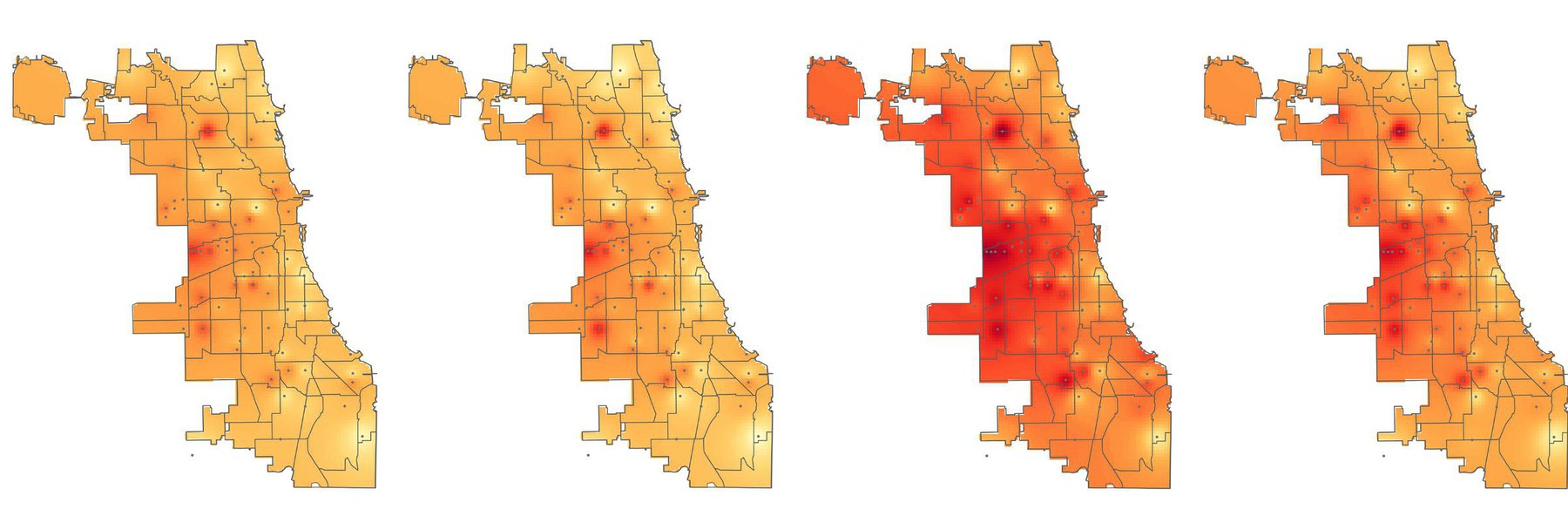A layman’s guide to Chicago public records and related disregard from city officials. A transparency site is called for testimony to amend Kansas FOIA. Robots who see your phone and know who you are. It’s all here in this week’s FOIA round-up.
Have any favorite FOIA stories? Send them over via email, on Twitter, or on Facebook, and maybe we’ll include them in the next roundup.
Chicago police raids, FOIA, and the courts
CBS 2 Chicago published a layman’s guide to the Illinois Freedom of Information Act on Wednesday that detailed prominent police interactions with requesters, including people denied footage from raids in their own homes and city officials failing to comply with the law.
“Some agencies, like [the Chicago Police Department], don’t even bother to respond until they get sued,” Matt Topic, an attorney specializing in FOIA and transparency, told the station. “Others, like the Mayor’s Office, respond, but put up unreasonable obstacles that aren’t supported by law.”
In one example, Domonique Wilson requested police body camera footage of a search warrant execution during which police handcuffed her eight-year-old son, leaving him “traumatized and with bruises on his wrists.” Police denied her request as “too burdensome”. CBS 2 Chicago investigated, and police released the footage the day after the story was published.
City officials often fail to comply with the law, but concerned requesters may find success in appeals or lawsuits, and, as Topic acknowledges, though most people cannot afford to file FOIA lawsuits, successful cases could result in a judge ordering the city to pay for fees and expenses.
Read the full article at CBS 2 Chicago.
SpotCrime provides feedback on Kansas FOIA
Transparency organization and crime mapper SpotCrime has provided its thoughts on proposed updates to bring Kansas’ public records law “into the 21st century,” the blog wrote Wednesday.
The written testimony addresses public access to police documents, appropriate charges for information, and the outsourcing of records to private vendors. The site recommends changes to these areas to improve accountability and trust as well as make processing requests easier for the government.
Digital documents are also strongly emphasized. The current version of the public records law contains little to no specific language in regards to electronic records.
In one case, SpotCrime asked the Leavenworth Police Department how they determined an Excel file constituted 149 pages when calculating a fee. The department responded that they had been instructed to charge per page even though they were emailing electronic files and Excel files do not have specific pages.
The site has previously provided testimony for Maryland’s updated public records law in 2014, which overwhelmingly passed the House and Senate before being signed into law later that year.
Read the full testimony at SpotCrime.
More records on Huntington Park surveillance robots used to target “sketchy dudes”
A presentation on the Knightscope surveillance robots leased to Huntington Park, California have more information on the bots’ abilities to match cell phones to individuals, recognize license plates, and flag persons of interest.
The presentation, obtained by Medium tech publication OneZero, was shown to the city council in June of this year. The publication also obtained emails from police which described measuring elevators to ensure the robot could fit through the doors.
The slides detail the robots capabilities for facial recognition and the ability to scan wireless devices to track individuals whether or not it can identify their faces. As an example provided by KnightScope, the robot can also flag persons of interest with labels like “sketchy dude” or “causes trouble”. The use of facial recognition has faced widespread criticism by privacy activists. Other cities in California, such as San Francisco and Oakland, have banned the technology outright.
KnightScope also says that the robot could also fill the role of “social media influencer”. One KnightScope robot infamously drowned itself in a D.C. office pond, gaining hundreds of thousands of retweets and media coverage.
MuckRock previously received materials related to the robocops, which the city got in November 2018 under a three-year, $240,000 lease. There is currently an open MuckRock Assignment to let us know about any robocop usage in your neighborhood.
According to KnightScope’s website, two other police agencies have contracts with the vendor, including North Central Texas College.
Read the full article at OneZero.




